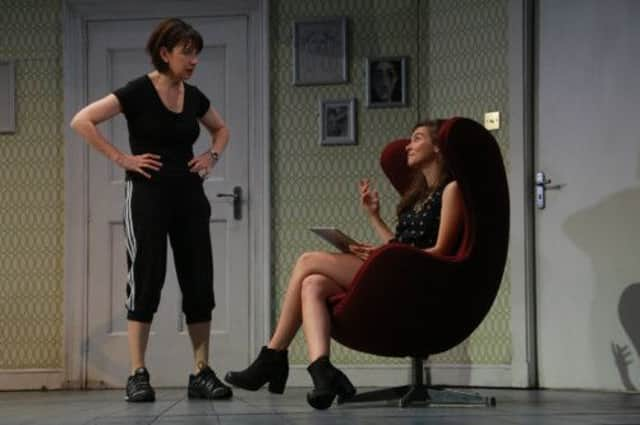Theatre review: Dark Road, Edinburgh


Dark Road - Royal Lyceum Theatre, Edinburgh
* *
And ambitious young Detective Constable Isobel McArthur is on the case, determined – with her boss “Black” Fergus McLintock, and her colleague and lover Frank Bowman – to find the killer, and put him away for life.
That’s the story that forms the backdrop to Dark Road, the first-ever stage play by Edinburgh’s renowned crime writer Ian Rankin, co-written with – and directed by – the Royal Lyceum’s artistic director, Mark Thomson, and the omens were good, as an excited audience gathered at the Lyceum for Saturday’s premiere performance.
Advertisement
Hide AdThe play itself is set in the present, when McArthur – 25 years on, once Scotland’s first woman chief constable, and now facing retirement – finds herself beset by doubts about the conviction of the alleged murderer, Alfred Chalmers; and the scene seems set for a fine, dark two-and-a-half-hours of classy genre fiction in the style pioneered by television cop shows from Prime Suspect to The Killing, featuring an impressive cast led by the wonderful Maureen Beattie as McArthur, with Robert Gwilyn as Frank, and a fine Sara Vickers as McArthur’s teenage daughter.
So how to account, then, for the slow-motion car-crash of theatrical bad taste, chaotic plotting, and sheer, pointless nastiness that eventually overtakes one of Scottish theatre’s most promising recent projects?
The first sign of trouble comes with the set, a great concrete-look revolve – often enlivened by huge projected images of the dead girls – that jolts us from home to office to prison cell in the most literal manner, as if the play had given up on the idea of creating a cop show for theatre, and was bent on mimicking the narrative structure of a television series, gussied up with the odd explosion of superficial “theatricality”.
And from that moment on, problems of genre seem to dog the show, as it lurches from the noirish heightened naturalism of good 21st century television into a series of risible and grotesque dream-sequences in which McArthur confronts the killer in her own living room, and then – towards the end – dives into an orgy of half-baked onstage violence that seems more like black farce than anything else.
The play also boasts two staggeringly silly late plot-twists, one of which undermines the whole preceding narrative. And in the last 20 minutes, it completely blows its own credentials as a potentially interesting drama, to become a sickening display of sadism for its own sake.
I suppose the final scenes of Dark Road might become a cult hit among those who enjoy horror in all its forms, including terrible dialogue and plenty of blood. And it can’t be said too clearly that Thomson’s fine cast, including Philip Whitchurch as Chalmers, do all they can with the characters around whom the story is built.
Advertisement
Hide AdIn terms of narrative and style, though, this show gradually fades into a silly, sensational mess, with nothing to say, and a peculiarly graceless way of saying it. Time to lower the curtain, and move on.